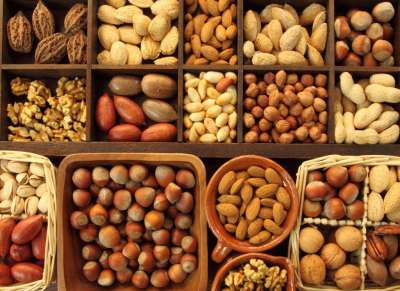The spice market, long steeped in tradition and history, is undergoing a transformative shift driven by innovative trading practices. This Flavor Revolution is not only changing the way spices are bought and sold but also impacting the entire supply chain from farmers to consumers. This revolution is characterized by transparency, sustainability, and a focus on quality, reshaping an industry that has remained largely unchanged for centuries. One of the key drivers of this transformation is the increasing demand for transparency in the supply chain. Consumers today are more conscious about the origins of their food, seeking assurances that the products they purchase are ethically sourced and sustainably produced. In response, spice traders are adopting blockchain technology to provide detailed, immutable records of a spice’s journey from farm to table. This technology ensures that every step of the process is recorded, offering consumers and retailers the confidence that the spices are authentic and produced under fair conditions.

Blockchain not only builds trust but also helps in combating fraud and adulteration, issues that have plagued the spice market for years. Sustainability is another crucial aspect of the Flavor Revolution. Traditional spice farming often involves practices that are detrimental to the environment, such as deforestation and overuse of pesticides. Innovative trading practices are encouraging the adoption of sustainable farming techniques. Traders are working directly with farmers to implement organic farming methods, promote crop diversity, and reduce the environmental footprint of spice production. This shift is supported by certification programs that validate the sustainability of farming practices, enabling farmers to command higher prices for their produce. As a result, consumers can enjoy spices that are not only flavorful but also environmentally friendly. Quality control is being revolutionized by advancements in technology. Precision agriculture, which involves the use of sensors, drones, and data analytics, is helping farmers optimize their yields and improve the quality of their crops.
For instance, sensors can monitor soil health and moisture levels, allowing farmers to make informed decisions about irrigation and fertilization. Drones can provide aerial imagery to detect early signs of pest infestations or plant diseases. Data analytics can predict the best planting and harvesting times, ensuring that spices are harvested at their peak flavor. These technologies are enabling farmers to produce higher-quality spices, which in turn fetch better prices in the market. Direct trade is another innovative practice gaining traction in the Rota das Índias spice market. Traditionally, spices pass through multiple intermediaries before reaching the consumer, each adding a markup that increases the final price. Direct trade eliminates these middlemen, allowing farmers to sell directly to retailers or even consumers. This practice not only ensures fair compensation for farmers but also provides consumers with fresher, higher-quality products at competitive prices. Additionally, direct trade fosters stronger relationships between farmers and buyers, creating a more resilient and responsive supply chain.
